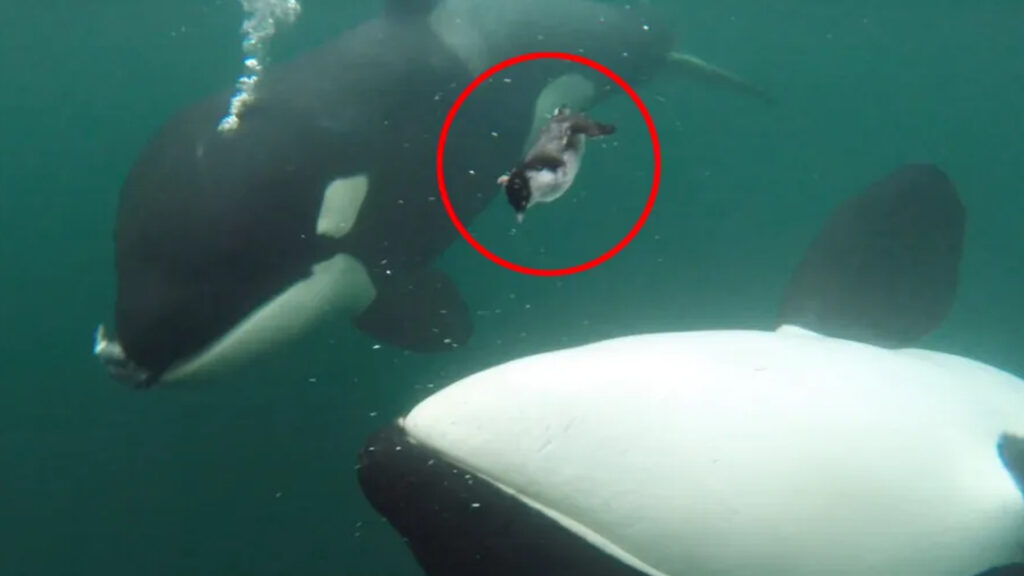Killer whales, known for their intelligence and complex social structures, have been observed engaging in an unusual behavior that has left scientists puzzled: offering gifts to humans. This phenomenon, recorded in various locations including Norway and New Zealand, involves orcas approaching humans with offerings such as fish, mammals, and even turtles.
The behavior, typically seen among orcas themselves, is now being documented in interactions with humans. According to Dr. Ingrid Visser, a study author, “Orca are very social and we frequently see them food-sharing.” The study, published in the Journal of Comparative Psychology, highlights these interactions as a fascinating development in our understanding of orca behavior.
Unprecedented Acts of Kindness
In the recorded instances, the orcas swim up to humans, drop an item, and then linger, seemingly awaiting a response. This behavior mirrors that of domesticated animals like cats and dogs, which are known to present gifts to their human companions. Jared Towers, the lead author of the study, notes, “There appears to be a prosocial element to these cases,” emphasizing the rarity of such behavior in non-domesticated animals.
Researchers have documented 34 incidents of this gift-giving behavior. In 11 cases, humans were in the water, while in 21 instances, the interactions occurred with people on boats. Two additional cases involved humans on the shore. In nearly all cases, the orcas waited to observe the humans’ reactions, and in seven instances, they attempted to offer the gifts repeatedly after initial refusal.
Understanding Orca Intelligence
Orcas, as apex predators, are at the top of the marine food chain, often consuming large mammals. Vanessa Prigollini, another study author, explains, “Orcas are apex predators that often eat other large mammals. But when it comes to people, they occasionally prefer to share, indicating their interest in building relationships outside their own species.”
Ecologist Dr. Carl Safina provides further insight, suggesting that orcas may perceive humans as “visiting aliens” in their marine environment. He states, “Of the many and varied minds in the sea, likely the greatest are those of orcas. After living millions of years in the sea, to them we in our boats must seem like visiting aliens.”
Implications and Future Research
The implications of this behavior are profound, suggesting a level of social intelligence and curiosity in orcas that may not have been fully appreciated before. The study’s findings open new avenues for research into the cognitive abilities of orcas and their capacity for cross-species interactions.
As researchers continue to study these interactions, they aim to uncover the motivations behind such behavior and its potential impact on human-orca relations. The findings also raise questions about how these interactions might influence conservation efforts and the broader understanding of marine mammal intelligence.
The study’s authors hope that these observations will lead to a greater appreciation of orcas and their complex social behaviors, encouraging further exploration into the mysteries of these remarkable creatures.
